Uploaded by Rafael Popper 5292 days ago Number of pages: 114 File's language: English Views: 1073
Over the past decade the internet has become a vital part of everyday life for the majority of Europeans and over two billion people across the world. This is likely to expand to seven billion by 2020 as the sophistication in mobile phone technology transforms them into internet access devices. Furthermore, the growth of connectivity of internet-enabled devices, e.g. the internet of things, will increase this substantially. This explosion in connectivity will redefine the very nature of the internet and, most importantly, the fabric of social, cultural, political and economic institutions globally.
The permeation of the internet in all socio-economic dimensions of our lives has led to an increasing dependency which inevitably breeds deep potential vulnerabilities. These are both technical, eg security and resilience, and legal, eg privacy and trust, which brings into focus the urgency for governance and regulation. On the other hand, it is also true that the internet's bottom-up evolutionary development and relative lack of protection and regulation has made possible the flourishing of innovative applications and unprecedented possibilities, with huge societal and economic repercussions.
The need to better understand these complexities was the starting point for this study, "Towards a Future Internet: Interrelation between Technological, Social and Economic Trends", which was carried out in 2009/2010 for the European Commission‟s DG Information Society and Media. The aim was to investigate the links between technological, social and economic trends related to the future internet, explore the future needs of internet users, and outline the principles that should guide its future development.
The study identified four pervasive forces which will impact the future internet. These are:
- Stakeholder conflicts.
- Changing infrastructure and socio-technical context.
- Governance and regulation.
- User focus and inclusion.
Together, they point to a key question:
How can we guide the evolution of the internet so that it best serves the needs of society?
The study addressed this question through several foresight techniques and environmental scanning, an online Delphi survey of experts and scenario analysis to identify and analyse trends, drivers of change, future needs, technological options and likely socio-economic impacts.
With input from the Delphi results, trend analysis and workshop discussions, we constructed and refined four scenarios of plausible future socio-economic conditions with differing needs:
Smooth Trip: the rise of the internet economy as a whole life and work style, a middle road in contrast to more disruptive scenarios.
Going Green: internet technologies are used to combat growing environmental challenges.
Commercial Big Brother: a heavily commercialised consumer platform.
Power to the People: a forum for democracy and freedom, based on free production and exchange of knowledge.
 State-of-art of sustainable innovation
State-of-art of sustainable innovation Sustainable Innovation Policy Advice
Sustainable Innovation Policy Advice CASI-F: Common Framework for the Assessment and Management of Sustainable Innovation
CASI-F: Common Framework for the Assessment and Management of Sustainable Innovation Your passport to the future!
Your passport to the future! The technology horizon: Preliminary review on technologies impacting the future health and social care workforce
The technology horizon: Preliminary review on technologies impacting the future health and social care workforce CfWI Future workforce matters - Issue 4
CfWI Future workforce matters - Issue 4 CfWI Future workforce matters - Issue 4
CfWI Future workforce matters - Issue 4 Science Foundation Ireland (SFI) Agenda 2020
Science Foundation Ireland (SFI) Agenda 2020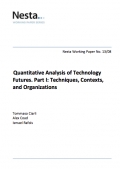 Quantitative Analysis of Technology Futures. Part I: Techniques, Contexts, and Organizations
Quantitative Analysis of Technology Futures. Part I: Techniques, Contexts, and Organizations myForesight: Malaysia's National Foresight Magazine (2nd Edition)
myForesight: Malaysia's National Foresight Magazine (2nd Edition) CfWI Future workforce matters - Issue 3
CfWI Future workforce matters - Issue 3 CfWI Future workforce matters - Issue 2
CfWI Future workforce matters - Issue 2 CfWI Future workforce matters - Issue 1
CfWI Future workforce matters - Issue 1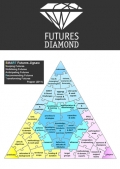 New Horizon Scanning Concepts, Practices and Systems
New Horizon Scanning Concepts, Practices and Systems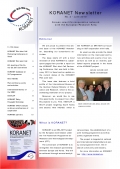 KORANET Policy Foresight Workshop in Vienna/Austria
KORANET Policy Foresight Workshop in Vienna/Austria The Use of Strategic Intelligence and Horizon Scanning
The Use of Strategic Intelligence and Horizon Scanning iKnow ERA Toolkit (2011)
iKnow ERA Toolkit (2011) iKnow National Studies (2011)
iKnow National Studies (2011) iKnow Policy Alerts (2011)
iKnow Policy Alerts (2011) iKnow Interviews (2011)
iKnow Interviews (2011) iKnow Conference - Brussels, 27-28 October 2011
iKnow Conference - Brussels, 27-28 October 2011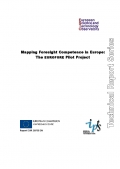 Mapping Foresight Competence in Europe: The EUROFORE Pilot Project
Mapping Foresight Competence in Europe: The EUROFORE Pilot Project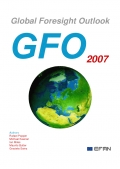 GFO 2007 - Global Foresight Outlook
GFO 2007 - Global Foresight Outlook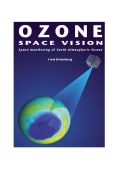 OZONE: SPACE VISION
OZONE: SPACE VISION
iKNOW has been featured in the media and several research projects:
DIE ZEIT (Germany), Financial Times (Germany), El Heraldo (Colombia), Prospective Foresight Network (France), Nationalencyklopedin (Sweden), EFP - European Foresight Platform (EC), EULAKS - European Union & Latin America Knowledge Society (EC), CfWI - Centre for Workforce Intellience (UK), INFU - Innovation Futures (EC), Towards A Future Internet (EC), dstl - Defence S&T Laboratory (UK), EFSA - European Food Safety Agency (EU), Malaysia Foresight Programme (Malaysia), Bulletins Electroniques more...
